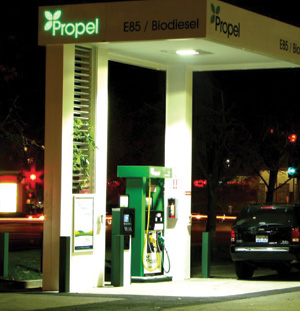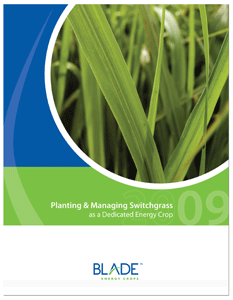April 2009
 View Full Print Edition
View Full Print EditionBusiness Briefs
Columns
Will plant construction pick up in 2009?
By Bryan Sims

Industry Brims With Optimism at NEC
By Mike Bryan

Humpty Dumpty and the Blend Wall
By Bob Dinneen

New Form I-9 Rules to Be Implemented
By Britney L. Schnathorst

Gearing Up for the Biomass Conference
By Rona Johnson

The Case for Incrementalism
By Tim Portz

Politics: Not Everyone Sees Eye to Eye
By Jessica Sobolik

It's Time to Rock the House
By Joe Jobe
Featured
Managing Ethanol Risk
By Jerry Gulke
Renewable energy credit prices are on the rise as ethanol blend economics remain poor and the year-end reporting date looms. EPM talks with Clayton McMartin, president of Clean Fuels Clearinghouse, about renewable identification number credits, industry consolidation, and the oil industry's 800-pound gorilla, Valero Energy Corp., which can no longer be ignored.
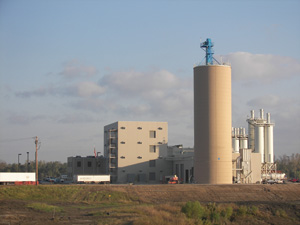
Concentrating on Coproducts
By Anna Austin
A diverse group of people pooled their expertise to design an advanced fractionation system specifically for the ethanol industry that maximizes food-grade production and product yields.
By Megan Skauge, Ryan C. Christianson, Anna Austin, Erin Voegle, Hope Deutscher, Susanne Retka Schill, Ron Kotrba, Rona Johnson, Dave Nilles, Jessica Sobolik and Bryan Sims
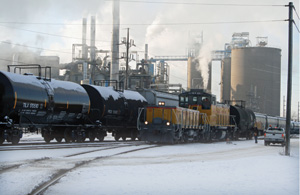
The Ethanol Line
By Ryan C. Christiansen
Regional and short line railroads continue to upgrade their operations to move ethanol.

Obama and His Green Dream Team
By Erin Krueger
The new administration faces the historic challenge of guiding the nation through one of the most severe economic downturns in its history. During the campaign, hope and change were the pillars of President Barack Obama's message. Industry leaders share their expectations of the new administration with EPM.

Coming Clean
By Bryan Sims
Whether, and to what extent, businesses should disclose climate change risks in their U.S. Securities and Exchange Commission filings is gaining the attention of a number of stakeholders, including those in the ethanol industry.

Wood Pellet Prowess
By Anna Austin
The owner of Western Oregon Wood Products discusses his wood pelletizing process with Biomass Magazine, as a prelude to the tour of his Banks, Ore., facility at the upcoming 2009 International Biomass Conference & Expo.
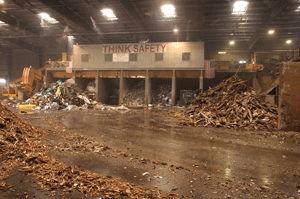
The Politics of ‘Dirty' Wood
By Ron Kotrba
Pressure-treated and painted, or what is commonly referred to as "dirty" wood, is often off limits for productive reuse and relegated to landfills. Stakeholders in the construction and demolition industries talk about the politics and economics holding back the potential these prolific waste streams possess in the renewable energy sector and, more importantly, what can be done to make use of this resource.

Barrels of Biogas
By Ryan C. Christiansen
There has never been a prohibition against innovation. Breweries, distilleries and related industries are using biomass and waste to produce renewable energy.
The National Biodiesel Board's annual conference was held in San Francisco, where cable cars, biodiesel and cultural diversity have long been a mainstay.

Obama's Energy Team
By Erin Krueger
President Barack Obama is challenged with guiding the U.S. through one of the most severe economic downturns in its history, and his energy policies are expected to be a cornerstone of his strategy. Industry leaders share their expectations for the new administration with Biodiesel Magazine.
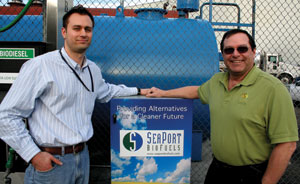
Beneficial Blending
By Kris Bevill
Fuel dispensers that offer up to three different blends of biodiesel are relatively new to the retail market. Although the concept is simple, the blender pumps have been slow to catch on. Biodiesel Magazine talks to the experts about whether the dispensers will increase the market for biodiesel, and what obstacles are preventing their widespread use.

The Search for Sustainable Solutions
By Susanne Retka Schill
Producing sustainable biofuels will require conservation tillage practices and much more.
Contributions
Identifying, Controlling the Most Common Microbial Contaminants
By Patrick Heist
Microbial contamination is a significant concern for fuel ethanol producers. Proper cleaning guidelines and control strategies will help avoid potential yield losses and the production of unwanted organic acids.

Design Guide: Safe, Efficient Loading Racks
By Josh Baker
Don't follow the one-size-fits-all approach to ethanol loading racks or corn delivery systems. Increase profits while providing workers safe access.
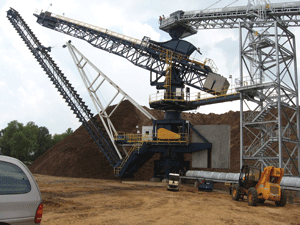
Louisiana Paper Plant Adapts For Biomass
By Trotter Hunt
The complete replacement of a fuel delivery system provided a Louisiana paper manufacturing facility with the biomass-based renovation it needed.

